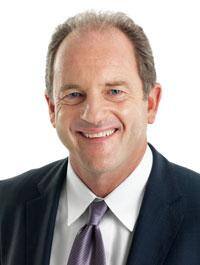A hand up not a hand-out

April 10 2014
Food has always been important to the Indian community, taking on an almost sacred dimension that dates back to years where there were shortages and famine. Food was precious and nothing was taken for granted.
I thought of those parallels when I visited a school last week.
Despite being a decile one school, Yendarra Primary School in Otara said ‘no’ to government food handouts. Instead, in partnership with their families it developed a school culture that values good nutrition. And, they’ve achieved healthy lunches for 100% of their children: fruit, vegetables, sandwiches, water.
If they can do it in one of the poorest neighbourhoods in the country, I believe any school should be able to do it. You can literally see the health and vibrancy in the children’s faces.
Most importantly, obesity levels are down, and the ability of the children to concentrate on their work in class is up.
With my food in schools bill coming up in parliament soon, it was exactly the type of inspiration I wanted to see.
My bill will make sure hungry school children are fed. But I think it’s important that New Zealanders see food in schools as a means of developing self-reliance and encouraging better nutrition.
With better food comes better health and with better health there are fewer chronic diseases and hospital admissions that cost the country so much in taxpayer dollars.
I asked the Yendarra School principal, Susan Dunlop, why her community had turned down free food in schools. She explained that most Yendarra parents are busy and hard-working, sometimes holding down several jobs, many of them shift-work.
But feeding their families nourishing meals is a way they can show love to their children every day. They didn’t want that important role taken away from them.
Yendarra’s approach provides benefits not just to the kids and their families, but to the wider community. If every school community could be like this, we’d avoid a looming – and very expensive -- crisis in our health system.
Currently one in four New Zealanders is obese, which brings with it other problems, like diabetes and heart disease -- the single most common cause of death in New Zealand. It’s both a tragedy and an economic burden New Zealanders can't afford.
If there’s one thing I’ve learned in my work as a teacher, as a parent, as a humanitarian with the UN, and as a politician, it’s that people and communities operate best when they’re engaged in providing their own solutions for their own problems.
That’s why I see my food in schools bill as a hand-up not a hand-out.
David Shearer
MP and Labour Party Spokesman for Energy and Foreign Affairs
Food has always been important to the Indian community, taking on an almost sacred dimension that dates back to years where there were shortages and famine. Food was precious and nothing was taken for granted.
I thought of those parallels when I visited a school last week.
Despite being a...
Food has always been important to the Indian community, taking on an almost sacred dimension that dates back to years where there were shortages and famine. Food was precious and nothing was taken for granted.
I thought of those parallels when I visited a school last week.
Despite being a decile one school, Yendarra Primary School in Otara said ‘no’ to government food handouts. Instead, in partnership with their families it developed a school culture that values good nutrition. And, they’ve achieved healthy lunches for 100% of their children: fruit, vegetables, sandwiches, water.
If they can do it in one of the poorest neighbourhoods in the country, I believe any school should be able to do it. You can literally see the health and vibrancy in the children’s faces.
Most importantly, obesity levels are down, and the ability of the children to concentrate on their work in class is up.
With my food in schools bill coming up in parliament soon, it was exactly the type of inspiration I wanted to see.
My bill will make sure hungry school children are fed. But I think it’s important that New Zealanders see food in schools as a means of developing self-reliance and encouraging better nutrition.
With better food comes better health and with better health there are fewer chronic diseases and hospital admissions that cost the country so much in taxpayer dollars.
I asked the Yendarra School principal, Susan Dunlop, why her community had turned down free food in schools. She explained that most Yendarra parents are busy and hard-working, sometimes holding down several jobs, many of them shift-work.
But feeding their families nourishing meals is a way they can show love to their children every day. They didn’t want that important role taken away from them.
Yendarra’s approach provides benefits not just to the kids and their families, but to the wider community. If every school community could be like this, we’d avoid a looming – and very expensive -- crisis in our health system.
Currently one in four New Zealanders is obese, which brings with it other problems, like diabetes and heart disease -- the single most common cause of death in New Zealand. It’s both a tragedy and an economic burden New Zealanders can't afford.
If there’s one thing I’ve learned in my work as a teacher, as a parent, as a humanitarian with the UN, and as a politician, it’s that people and communities operate best when they’re engaged in providing their own solutions for their own problems.
That’s why I see my food in schools bill as a hand-up not a hand-out.
David Shearer
MP and Labour Party Spokesman for Energy and Foreign Affairs









Leave a Comment